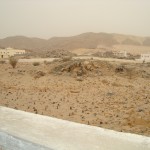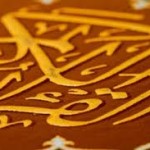Giving Zakah on stock which was bought to sell
QUESTION:
Assalamulaikum.
A question has been asked by a friend regarding stock for sale.
This person had £3000 savings and used to pay 2.5% (£75) zakat every year.
Now he has bought stock to sell which could potentially sell for £4000 after deducting any fees and postage.
He thinks it will take him 3 years to sell everything.
He doesn’t understand the reason behind paying zakat on £4000 for all 3 years.
Maybe I haven’t worded the question properly but I hope you understand the question.
I think what he means is that maybe he was better of not doing the business as all the profits or maybe more will be paid in zakat.
Please can you explain.
Jazakallah
ANSWER:
In the Name of Allah, the Most Gracious, the Most Merciful.
As-salāmu ‘alaykum wa-rahmatullāhi wa-barakaaathuh
In principle, zakāh is compulsory on:
- Gold and silver
- Currency
- Cattle (camels, cows, goat and sheep)
- Business goods
- Crops and cultivation
Hence, zakāh is compulsory on all business goods (purchased for the purpose of resale) just as it is compulsory on money. [1]
Zakāh is not a tax, but a means of purification of our wealth and our appreciation to Allah. It results in growth and blessings in both the worlds. One should not assume that his wealth is decreasing upon giving zakāh; rather, it is an investment for all the good yet to come and, certainly, for the Hereafter. The Prophet (peace be upon him) said:
مَا نَقَصَتْ صَدَقَةٌ مِنْ مَالٍ
Charity does not reduce wealth. [Jami` al-Tirmidhī: 2029]
In explaining this hadīth (prophetic tradition), Allāmah Asghar Alī Rabbāni (may Allah have mercy upon him) writes:
يصف حالتين من ممتلكات الشخص: (1) الأصل الذي يوفر لمالكه ربحًا أو منفعة مادية، أو قد يتم استخدامها،(2) أصل يتم إنتاجه عن طريق النمو ، إما كمكسب أو عن طريق الاستحواذ . لذا ، فإن الأرباح والثروة الحيوانية والغرس تعطي أو يمكن أن تعطي زيادة واحدة. وهذا معنى قول الرسول صلى الله عليه وسلم: ” ما نَقَصت صدقة من مال ” (الترمذي). يدفع المرء الزكاة بجزء بسيط من فائض النمو ، وليس على الأشياء التي يستخدمها الفرد أو الأسرة شخصيًا ، مثل المنزل (يعيش فيه المرء) أو الأثاث أو السيارة أو الملابس أو الأدوات (بما في ذلك الكتب). يدفع المزارع الزكاة من المحاصيل عند الحصاد ولكن ليس على المحصول المتبقي ، حتى لو تم تخزينه لسنوات. وهذا يضيف ظلًا آخر إلى المعنى اللغوي للزكاة “النمو” (جنبًا إلى جنب مع تزويد دافعها ببركة الله)
“A person’s property is of two types: (1) an asset that provides its owner with a tangible profit or benefit, (2) an asset that is produced by growth, either as a gain or by acquisition. So, profits, livestock and cultivation increase one in wealth. This is the meaning of the saying of the Messenger (peace be upon him): “Charity does not diminish money.”
Zakāh is only paid with a fraction of the growth surplus and on things which have an element of growth in them and not on things one uses or on the family’s personal belongings, such as a house (in which one lives), furniture, a car, clothes, or tools (including books) which is not used for the purpose of growth in wealth. For example, a farmer pays zakāh for the crops after harvest, but not on the remaining crops which are still unharvested, even if they are stored. Hence, the unharvested crops are a means of producing more crops, which ultimately leads to a further increase and growth in a person’s wealth.[2]
Hence one should not feel any negative thoughts or discouragements while giving zakāh; rather, he should give it wholeheartedly, hoping for reward from Allah and growth in his wealth. Furthermore, there is great emphasis in the Holy Qur’ān in regards to zakāh:
وَاَقِيۡمُوا الصَّلٰوةَ وَاٰتُوا الزَّكٰوةَ وَاَقۡرِضُوا اللّٰهَ قَرۡضًا حَسَنًا
“And establish prayer, and pay zakāh, and give Allah a goodly loan.” (73:20)
وَوَيۡلٌ لِّلۡمُشۡرِكِيۡنَ ۙ الَّذِيۡنَ لَا يُؤۡتُوۡنَ الزَّكٰوةَ وَهُمۡ بِالۡاٰخِرَةِ هُمۡ كٰفِرُوۡنَ
“And woe to those who associate others with Allah in His divinity; those who do not pay zakāh and who deny the Hereafter.” (41:7)
وَلَا يَحْسَبَنَّ الَّذِينَ يَبْخَلُونَ بِمَا آتَاهُمُ اللَّهُ مِن فَضْلِهِ هُوَ خَيْرًا لَّهُم ۖ بَلْ هُوَ شَرٌّ لَّهُمْ ۖ سَيُطَوَّقُونَ مَا بَخِلُوا بِهِ يَوْمَ الْقِيَامَةِ
“And let not those who [greedily] withhold what Allah has given them of His bounty ever think that it is better for them. Rather, it is worse for them. Their necks will be encircled by what they withheld on the Day of Resurrection. Abd to Allah belongs the heritage of the heavens and the earth, and Allah is well aware of what you do.” (3: 180)
مَنْ آتَاهُ اللَّهُ مَالاً، فَلَمْ يُؤَدِّ زَكَاتَهُ مُثِّلَ لَهُ يَوْمَ الْقِيَامَةِ شُجَاعًا أَقْرَعَ، لَهُ زَبِيبَتَانِ، يُطَوَّقُهُ يَوْمَ الْقِيَامَةِ، ثُمَّ يَأْخُذُ بِلِهْزِمَتَيْهِ ـ يَعْنِي شِدْقَيْهِ ـ ثُمَّ يَقُولُ أَنَا مَالُكَ، أَنَا كَنْزُكَ ” ثُمَّ تَلاَ {لاَ يَحْسِبَنَّ الَّذِينَ يَبْخَلُونَ} الآيَةَ
The Messenger of Allah (peace be upon him) said, “Whoever is made wealthy by Allah and does not pay the zakāh of his wealth, then on the Day of Resurrection, his wealth will be made like a bald-headed poisonous male snake with two black spots over the eyes. The snake will encircle his neck and bite his cheeks and say, ‘I am your wealth, I am your treasure.’ ” Then the Prophet (peace be upon him) recited the holy verses: ‘Let not those who withhold . . .’ (to the end of the verse). (3.180).
In conclusion, we should give our zakāh wholeheartedly and believe that the very wealth given in zakāh will be a means of our salvation in both the worlds.
And Allah Ta’ālā Knows Best
Musayb Dhaleel
Concurred by: Hanif Yusuf
References
[1]
[1]ثـم مـال الـزكوة يعتبر فيه كمال النصاب في أول الحول و آخره، و نقصان لـنـصـاب بـيـنـه طـرفى الحول لا يمنع وجوب الزكوة، سواء كان مال التجارة أو الـذهـب أو الـفـضـة أو السوائم هذا عند أصحابنا الثلاثة . والصحيح قولنا؛ لأنه كـمـال الـنـصـاب شـرط وجوب الزكوة فيعتبر حال انعقاد السبب، ومال ثبوت الحكم، وهو اول الحول و آخره ووسط الحول ليس حال انعقاد السبب ولا حال لوجوب فلا يجب اشتراطه فيه
[Tuhfah al-Fuqahā: Maktabah al-Shāmilah: 1:2712]
تجارت کے منافع کی زکوۃ کس طرح نکالیں گے؟
سوال ( ۴۸ ) : ء کیا فرماتے ہیں علماء دین ومفتیان شرع متین مسئلہ ذیل کے بارے میں کہ تجارت کے ذریعہ جومنافع حاصل ہوا ہے، اسکی زکوۃ کیسے ادا کی جاۓ گی ؟ آیا اسے اصل کے ساتھ ملا لیا جاۓ گا یا اس کی ز کو الگ سے نکالنی ہوگی ؟
الـجـواب وبالله التوفيق: درمیانی سال میں تجارت وغیرہ کے ذریعہ جو نافع حاصل ہوا ہے اس کو اصلی سرمایہ تجارت اور سامانتجارت کے ساتھ ملا کر سب کے مجموعہ کی لو ۃ نکالی جاۓ گی ۔
[Kitāb al-Nawāzil: Maktabah Jawed: 6:480]
ومن كان له نصاف فاستفاد في أثناء الحول من جنسه ضمه اليه وزكاه به.
[Fatāwā Hindiyyah: 1:175]
ولو كان الزيادة والـنـقـصـان في العين قبل الحول ثم حال الحول وهي کذالک، ففي الزيادة تجب الزكاة زائدة؛ لأن تلك الزيادة مستفادة فيخلال الحول فيضم إلى الأصل
(Fatāwv Tātārkhāniyyah: 3:172)
[2]
[Jāmi' al-Tirmidhī wa al-Madh'hab al-Hanafī: 4:140]
( قوله والنماء ) أي الزيادة ، ولها معان أخر : البركة ، يقال زكت البقعة : إذا بورك فيها ، والمدح يقال زكي نفسه إذا مدحها ، والثناء الجميل يقال زكى الشاهد إذا أثنى عليه بحر ، وكلها توجد في المعنى الشرعي لأنها تطهر مؤديها من الذنوب ومن صفة البخل والمال بانفاق بعضه ، ولذا كان المدفوع مستقذرا فحرم على آل البيت .. خذ من أموالهم صدقة تطهرهم وتزكيهم بها - وتنميه بالخلف وما أنفقتم من شيء فهو يخلفه – ويربى الصدقات - وبها تحصل البركة و لاينقص مال من صدقة ، ويمدح بها الدافع ويثنى عليه بالجميل - والذين هم للزكاة فاعلون .. قد أفلح من تزكي
[Radd al-Muhtār: H.M. Saeed: 2:256]
DISCLAIMER:
The Ask Our Imam site hopes to respond to queries relating to Islamic law. It is not an Islamic Law Shari`ah Court. The questions and answers found on this website are for educational purposes. However, many of the rulings rendered here are distinct to the specific scenario and thus should be read in conjunction with the question and not taken as a basis to establish a verdict in another situation or environment. This site bears no responsibility in these responses being used out of their intended context, nor to any party who may or may not follow the responses given and is being hereby exempted from loss or damage howsoever caused. None of the responses rendered may be used as evidence in any Court of Law without prior written consent of Our Imam. Any reference to another website or link provided in our responses or article should not be taken as an endorsement of all the content on that website; in fact, it is restricted to the particular material being cited.
Posted in Zakaah (Alms) on 24th Dec 2021 by Our Imam | 959 Views





